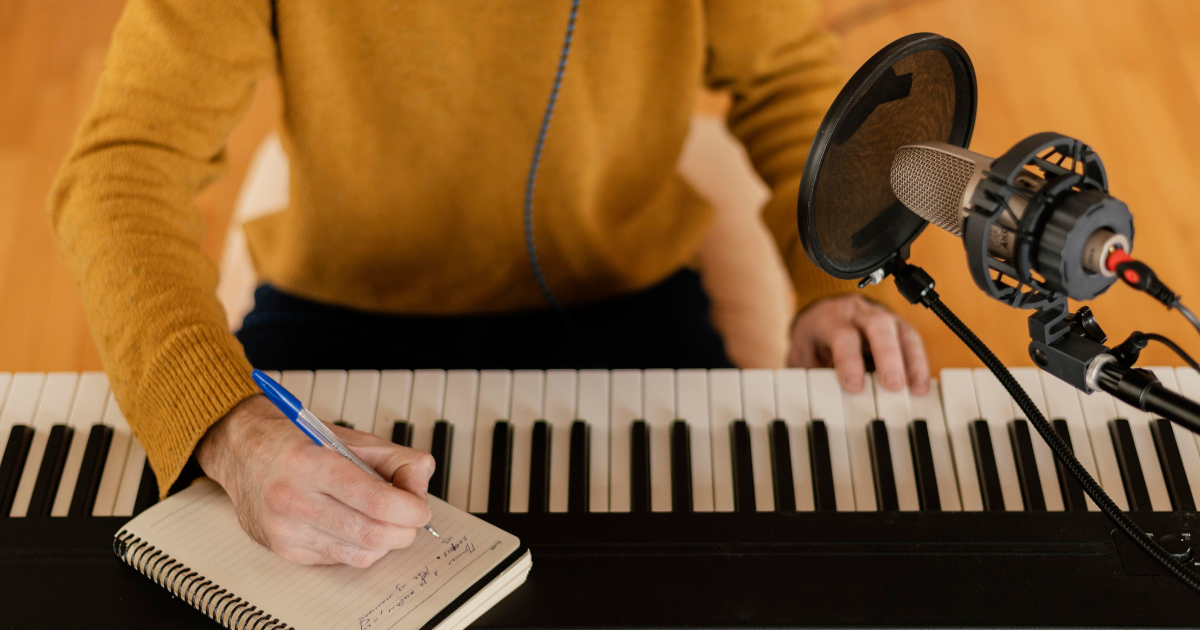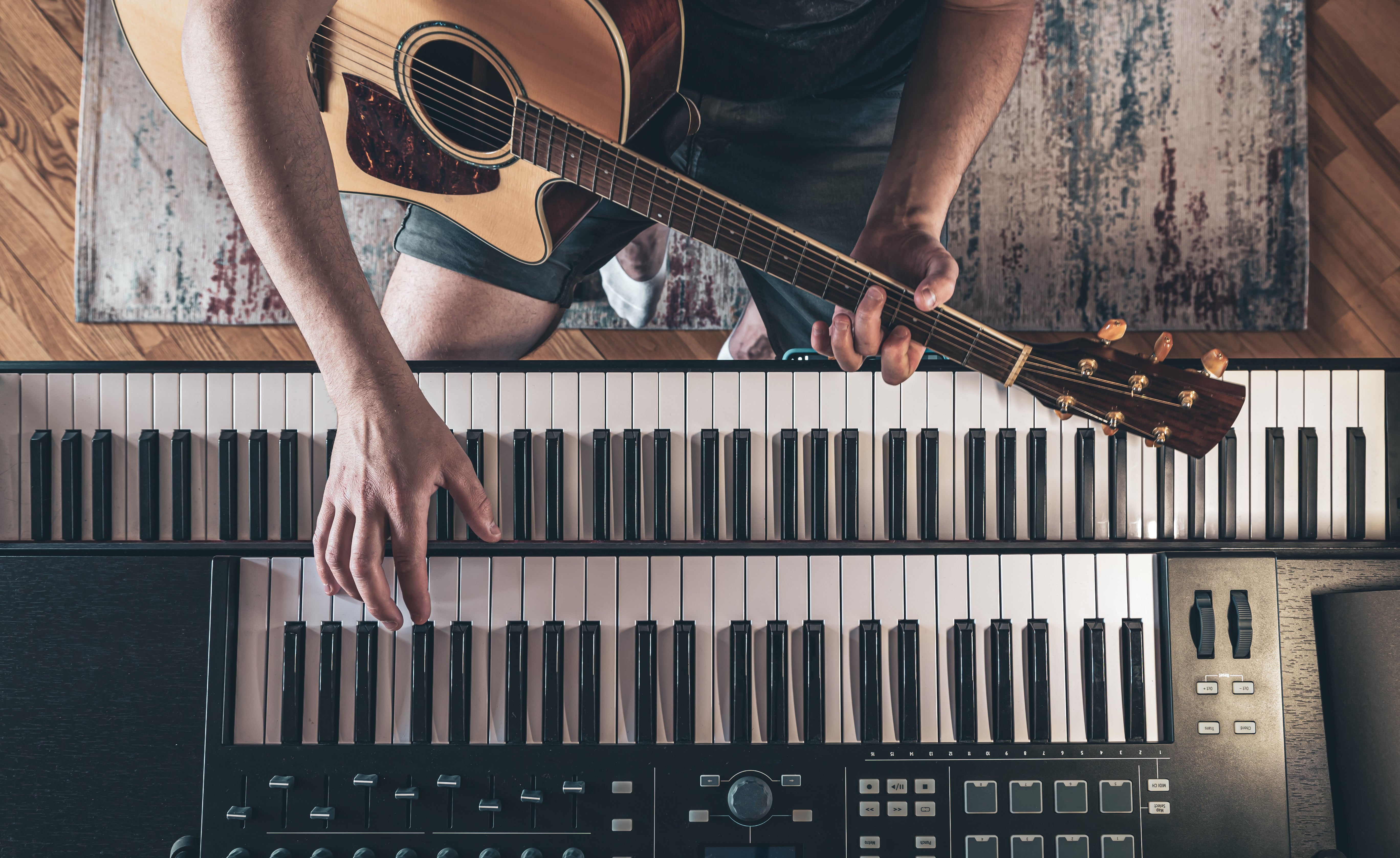1. Getting familiar with the keyboard and piano basics
Understanding the Key Layout
Before you begin playing piano, it is essential to understand the key layout. Familiarize yourself with the black and white keys on the keyboard, as well as the different octave groups. Learn to recognize the notes and their position on the keyboard.
Mastering Basic Chords
Chords are an important aspect of piano music. Begin by learning basic chords such as major and minor chords. Practice their formation and sequencing on the keyboard to gain some fluidity in the transitions between chords.Spoiler alert: We regularly update our Piano LED Plus system remotely and the new update will allow you to learn chords!
2. Using online resources and applications
Find online video tutorials
The Internet is full of free video tutorials that allow you to learn to play piano on your own. Look for YouTube channels that specialize in piano instruction, where you can find lessons tailored to different skill levels. Follow these step-by-step tutorials and practice regularly.Check out what some artists are doing.
Use piano learning apps
There are also many apps for smartphones and tablets that can help you learn piano. These apps offer interactive lessons, practice exercises, games and learning tools to improve your skills. Try different apps to find the one that best suits your learning style.
Join online piano communities
Become part of an online community of self-taught pianists. Join forums, discussion groups or social networks where you can share your experiences, ask questions and receive valuable advice from other passionate musicians. These communities can also be a source of inspiration and motivation.
3. Developing a Personal Learning Plan
Set achievable goals
Set clear and achievable goals for your piano learning. Whether it's learning a new piece, improving a specific technique, or playing a difficult piece with fluidity, concrete goals will help you stay motivated and measure your progress.Establish a regular practice routine
Make regular time for piano practice. Establish a practice routine that fits your schedule, setting aside regular time slots to focus on your practice. Regular practice is essential to building your skills and strengthening your musical muscle.
Track your progress and adjust your plan accordingly
Keep a journal of your progress and achievements. Record your practice sessions, note the pieces you learned, and identify areas in which you want to improve. By evaluating your progress, you will be able to adjust your learning plan to focus on the areas that need more attention.We look forward to receiving your videos, giving you tips, and sharing them with you!
4. Practicing regularly and effectively
Work on technique and finger dexterity
Devote a portion of your practice to working on piano technique. Practice warm-up exercises to strengthen your fingers and improve your coordination and agility. Also work on specific exercises to develop skills such as hand independence, arpeggio, and playing in octaves.
Break pieces into smaller sections
When approaching a complex piece, it can be helpful to break it down into smaller sections and work on them individually. Focus on each section, making sure you play accurately and smoothly before putting them together. This approach will help you grasp the pieces more easily and avoid feeling overwhelmed.
Use skill-building exercises
In addition to learning the pieces, practice specific exercises to strengthen your piano skills. This can include hand coordination exercises, scales, arpeggios, velocity exercises and technical studies. Incorporate these exercises into your practice routine to develop a strong technique.
5. Experimenting and playing with other musicians
Improvise and compose your own pieces
Don't be afraid to explore your creativity by improvising and composing your own pieces. This will allow you to develop your musicality, express your personal style and become familiar with different musical structures. Let your imagination run wild and experiment with different patterns, harmonies and melodies.
Join a band or ensemble
If you want to explore your musical experience further, consider joining a band or ensemble. This will allow you to play with other musicians, develop your listening skills and your ability to adapt to different playing styles. You will also learn new techniques and benefit from musical interaction.
Participate in jam sessions or local music events
Jam sessions and local music events offer a great opportunity to share your passion for the piano and connect with other musicians. Participate in improvisation sessions or open concerts, where you can play in front of an audience and receive constructive feedback. These experiences will build your confidence and enrich your musical journey.
Conclusion
Learning to play the piano on your own is an exciting adventure that requires dedication and perseverance. By following the tips mentioned in this article, you can make significant progress and develop your piano skills. Remember to be patient with yourself, practice regularly and enjoy the learning process. The piano is a beautiful instrument that will allow you to express your creativity and grow musically.
At Piano LED, we offer you a product that allows you to learn to play the piano by self-taught light guidance, discover it!





Laisser un commentaire
Tous les commentaires sont modérés avant d'être publiés.
Ce site est protégé par hCaptcha, et la Politique de confidentialité et les Conditions de service de hCaptcha s’appliquent.